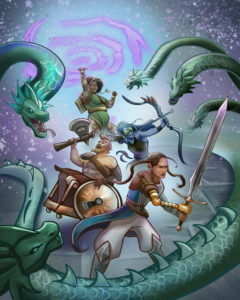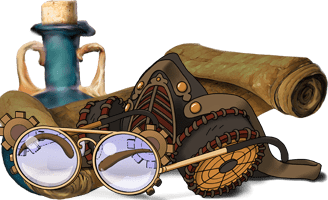Acquired Disabilities
People acquire disabilities in many ways. You may be born with a condition that’s noticeable at birth or early in life. Other conditions may be present at birth but don’t manifest until later, and a condition may also be a genetic predisposition toward a condition that increases the chances of it manifesting but doesn’t guarantee that it will. Others manifest as a natural result of aging, although like any other condition, they can manifest in diverse ways as people age.
Not all conditions originate internally. A traumatic event, exposure to a substance, or other external factors can result in temporary or permanent conditions both physical and mental to varying degrees, and the time and means by which the condition is acquired doesn’t reduce or negate the experience or its impact.
What Not to Do
- Don’t force it. Do not make a disabled condition the result of a die roll, especially with a “Crit Table” that offers extra effects on the roll of a natural 1 or 20 in combat.
- Don’t curse it. While certain conditions can give people’s lives challenges that they might wish they didn’t have, avoid associating “curses” with disabilities, as the word curse often has evil or unnatural connotations.
- Avoid madness/insanity tropes. While specific traits go into more detail about how mental illness manifests, avoid making mental illness the direct result of a monster ability or action. (Watch our website, wyrmworkspublishing.com, for suggestions on how to replace madness features in existing fifth edition monsters.)
How to Implement Acquired Disabilities
Just like including these conditions at character creation, any addition to an existing character should be a conversation between a player and GM, using an in-game event or a character’s background to implement and explore certain traits, either rolled or chosen, depending on the in-game circumstances or player choice. The GM might say, “You’ve been through a traumatic event. If you’d like to include it, we can choose or roll a disability related to that experience,” or, “Your character contracted a disease. Once you recover from it, there’s a possibility of a long-term condition as a result. Are you interested in exploring that experience with your character?” The player and GM should agree on the traits, impact, duration, and whether this is a permanent condition or may eventually end. After this conversation, if the player would like to make an ability check to resist the condition, the GM can offer a Constitution or Wisdom saving throw with a target Difficulty Class (DC) as applicable, but only by player preference. In the same way, the player and GM may choose how to end a temporary condition, whether by choosing or rolling a timeframe or by making a series of ability checks, as long as the player chooses to continue the experience. As stated above, don’t force it, and make the conversation ongoing.
As you adapt to certain traits, you may develop abilities that result from your adaptation. These adaptive skills develop over time. Any associated adaptive bonuses take 10d100 ÷ IE days per +1 bonus unless otherwise stated as more impactful traits will enable you to adapt more quickly.







 👀 Get 10 Free Adventures
👀 Get 10 Free Adventures
Comments
Acquired Disabilities — No Comments
HTML tags allowed in your comment: <a href="" title=""> <abbr title=""> <acronym title=""> <b> <blockquote cite=""> <cite> <code> <del datetime=""> <em> <i> <q cite=""> <s> <strike> <strong>